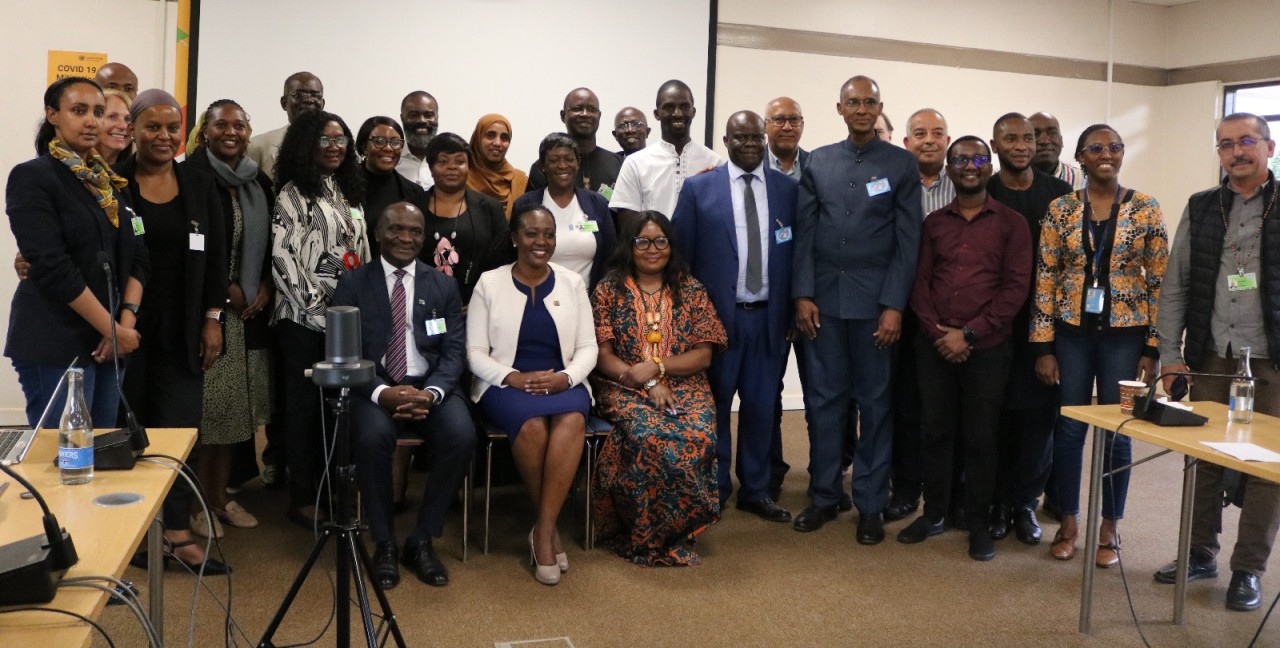
African Group of Negotiators asked to remain committed to the continent’s climate agenda
Kofi Adu Domfeh
Journalist | Media Trainer | Social Entrepreneur | Climate Reality Leader | Global Goodwill Ambassador
Kenya’s Cabinet Secretary for Environment, Climate Change and Forestry, Soipan Tuya has implored the African Group of Negotiators on Climate Change (AGN) to remain committed in its role as a technical advisory body to policy makers on climate change multilateral processes.
Addressing the AGN Lead Coordinators in Nairobi, Kenya, ahead of the African Climate Summit (ACS), she emphasised the importance of the AGN to all on-going climate processes at all levels.
She encouraged the group to remain resolute in its work and ensure that Africa gets the best from the climate multilateral processes.
“It is gratifying to note that you deliberately decided to come and have your meeting in Nairobi so that you are available to support the Africa Climate Summit,” said Soipan Tuya. “As AGN, you are our kitchen and engine room in these processes. We value your technical expertise and your work in the climate multilateral processes. Your role to the CAHOSCC and all the solid support you give us as policy makers is vital and cannot be underestimated.”
ACS, to be co-hosted by Kenya and the African Union Commission (AUC) in Nairobi from 4-6 September 2023, will be held under the theme: “Green Growth and Climate finance for Africa and the World.”
The meeting is envisaged to ensure Africa’s voice is elevated globally and integrated into existing international fora such as United Nations General Assembly (UNGA), G7/G20 processes and COP 28 among others.
The summit will be held concurrently with the Africa Climate Week (4-8 September 2023), an annual United Nations Framework Convention on Climate Change (UNFCCC) led event to promote actions that allow to course-correct and achieve the Paris Agreement goals and objectives.
The meeting is expected to bring together leaders from Africa and beyond; development partners; intergovernmental organisations; private sector; academia; civil society organisations; women and youth to design and catalyse actions and solutions for climate change in Africa by providing a platform to deliberate on the nexus between climate change, Africa’s development reality, and the need to push for increased investment in climate action globally, and specifically in Africa.
“As Africans, we recognise the importance of all the processes that have been going on, but we are at a point where we need to look for additional ways of supporting ourselves to meet the desired economic aspirations amid the climate crisis. We need to scale up action and reshape our thinking on how to deal with this challenge that we are facing,” observed Kenya’s Environment Minister.
She clarified that the summit was not aimed at replacing the on-going climate multilateral processes but rather strengthen Africa’s participation as a key player and showcase that despite the continent’s vulnerability to climate change impacts, there are immense opportunities for investment and growth that the world must acknowledge.
“We contribute very little but the most impacted. However, the summit is here to showcase that despite our vulnerability, we have immense opportunities for investment and growth that the world must acknowledge. The summit is not here to replace the AGN or any other climate multilateral processes. The summit cannot be here without the AGN as AGN is our engine for climate processes. Be rest assured of your continued role and expertise in these processes,” concluded Soipan Tuya.
领英推荐
AGN Chair, Ephraim Mwepya Shitima, pledged AGN’s unwavering support to the summit and the expected outcomes as the group prepares for COP28.
“We remain at your disposal as experts; we remain committed to Africa’s cause in these processes,” said Shitima.
Summit overarching objective
Africa is believed to be the continent of the future. As the youngest and fastest urbanizing continent with a population set to double to 2.5 billion by 2050, Africa has immense potential in clean energy, arable land, critical minerals, and natural resources.
While the continent is already demonstrating strong momentum in driving green growth, it needs to capitalise on this existing momentum by (a) driving a holistic Green Growth Agenda that takes advantage of its vast resources, and (b) securing Climate Finance tailored to Africa’s needs to achieve its growth ambitions.
Africa’s renewables potential will be fifty times the global anticipated electricity demand in 2040.
However, renewable energy accounts for 10% of electricity generation mix, and only 20% of the total installed electricity generation capacity in Africa.
Whereas Africa is home to 30-40% of the world's minerals - including those needed for green energy transition/batteries (e.g.,over 40% of global reserves of cobalt, manganese, and platinum), the continent has little to show for in terms of clean energy and mobility.
Similarly, while Africa has 60% of the world’s remaining uncultivated arable land, that, when sustainably exploited can help the world attain food security, the continent is a net importer of food.
The summit is thus looking to address the need to change Africa’s narrative on climate change to be a growth agenda by harnessing opportunities that exist for economic transformation.
By Kofi Adu Domfeh